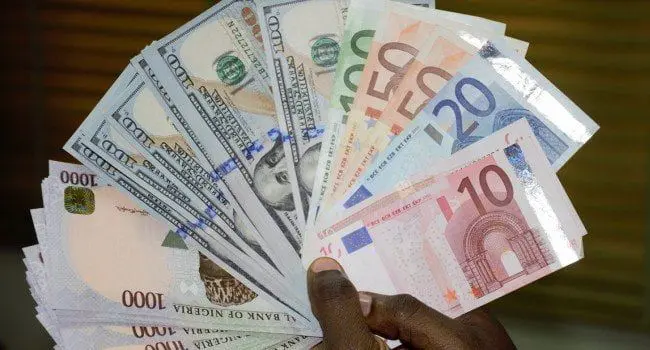
Aboki Naira to Dollar Black Market Exchange Rate Today, 16th October 2025
The Nigerian Naira exhibited marginal stability in the parallel market on Thursday, trading at approximately ₦1,505 per US Dollar, according to real-time updates from black market operators and currency monitoring platforms.
This rate, commonly referred to as the “Aboki” rate after the informal traders who dominate street-level exchanges, reflects a slight uptick from Wednesday’s closing figure but continues to underscore the currency’s vulnerability amid persistent inflationary pressures and foreign exchange shortages.
Trending Now!!:
In bustling financial hubs like Lagos, Abuja, Port Harcourt, and Kano, Bureau de Change (BDC) operators and street vendors reported buying rates hovering around ₦1,485 to ₦1,490 per dollar, with selling prices reaching as high as ₦1,505 to ₦1,510.
These figures mark a modest depreciation from earlier in the week, when the Naira had stabilized near ₦1,500. Still, they remain significantly elevated compared to the Central Bank of Nigeria’s (CBN) official rate, which stood at around ₦1,473.29 per dollar following a third consecutive dip in the Investors and Exporters (I&E) window.
The parallel market, which accounts for a substantial portion of Nigeria’s daily forex transactions despite regulatory crackdowns, has been a barometer of public sentiment toward the economy.
Economists attribute the current rates to a combination of factors, including reduced dollar inflows from oil exports—Nigeria’s primary revenue source—and heightened demand for hard currencies ahead of the holiday season.
“The black market premium persists because official channels can’t meet the supply needs of small businesses and individuals,” noted Dr. Aisha Bello, a senior economist at Lagos-based financial advisory firm EconInsights.
“Without bolder interventions from the CBN, we could see further volatility pushing rates toward ₦1,550 by month’s end.” For context, the Naira’s black market value has fluctuated wildly over the past year, peaking above ₦1,600 in mid-2025 before recent stabilization efforts by the government, including tighter monetary policy and diaspora remittance incentives.
On October 1, rates were quoted between ₦1,500 (buy) and ₦1,520 (sell), while by October 15, the selling rate had edged up to ₦1,505. Today’s levels suggest a cautious equilibrium, with traders in Wuse Zone 4, Abuja, advertising buys at ₦1,490 and sells at ₦1,510 via local WhatsApp networks.
Beyond the Dollar, other major currencies also saw incremental shifts in the parallel market:
- Euro (EUR): Buying at ₦1,670, selling at ₦1,720
- British Pound (GBP): Buying at ₦1,970, selling at ₦2,030
- Canadian Dollar (CAD): Buying at ₦1,041, selling at ₦1,060
These rates, aggregated from sources like NairaToday and trader forums, highlight the Naira’s broader weakness against a basket of currencies, exacerbating import costs for essentials like fuel and foodstuffs.
Market participants remain divided on the outlook. Optimists point to the CBN’s recent rate hikes and improved oil production forecasts as potential stabilizers, while pessimists warn of spillover effects from global uncertainties, including U.S. Federal Reserve signals on interest rates.
“For everyday Nigerians relying on remittances or small-scale imports, these Aboki rates are a lifeline—but they’re also a reminder of how fragile our forex ecosystem is,” said Chinedu Okoro, a Lagos-based importer.
As the day progresses, analysts will watch for any afternoon announcements from the CBN or Ministry of Finance that could influence trader sentiment.
For now, the black market underscores a stark reality: while official figures paint a picture of controlled depreciation, the streets tell a story of resilience amid adversity.


